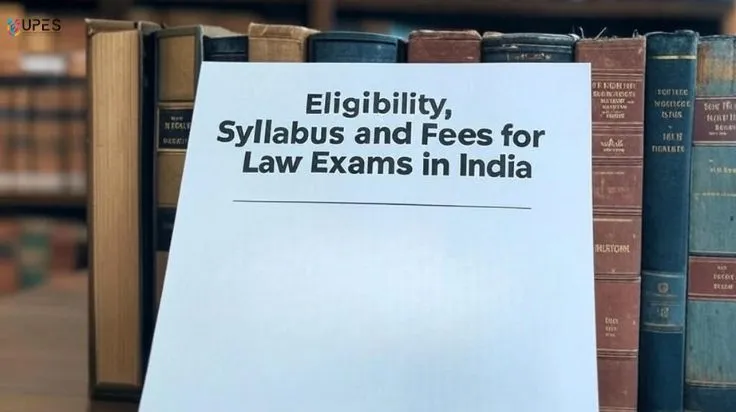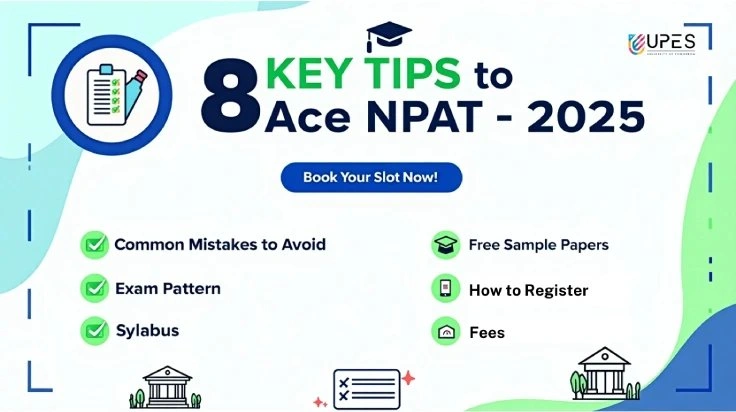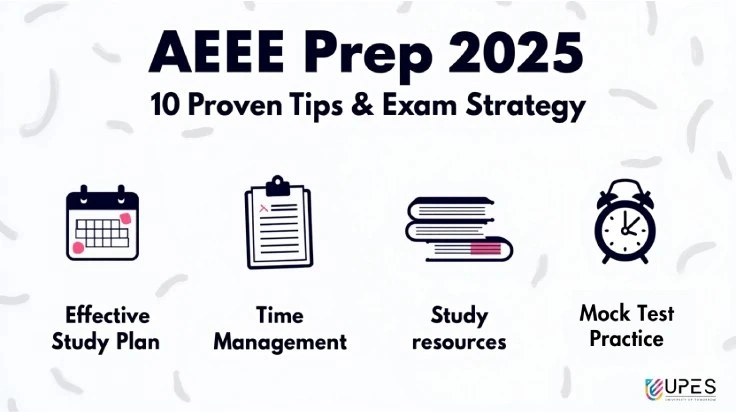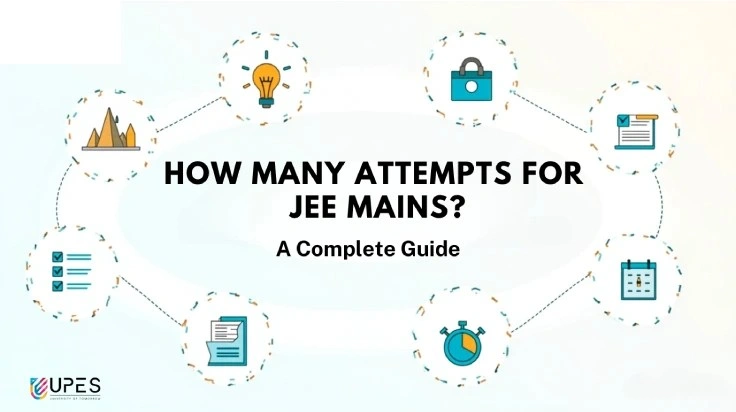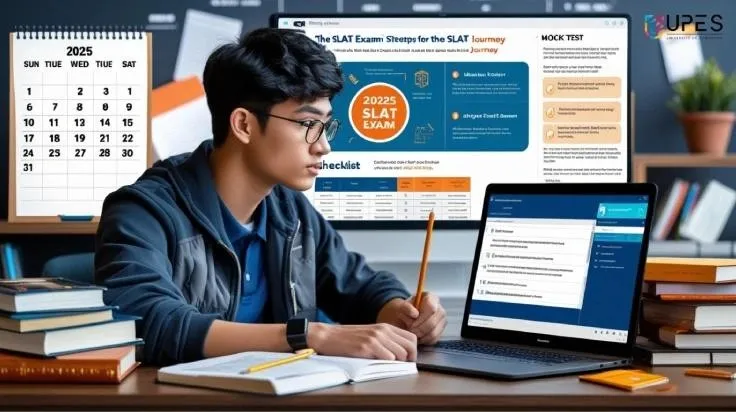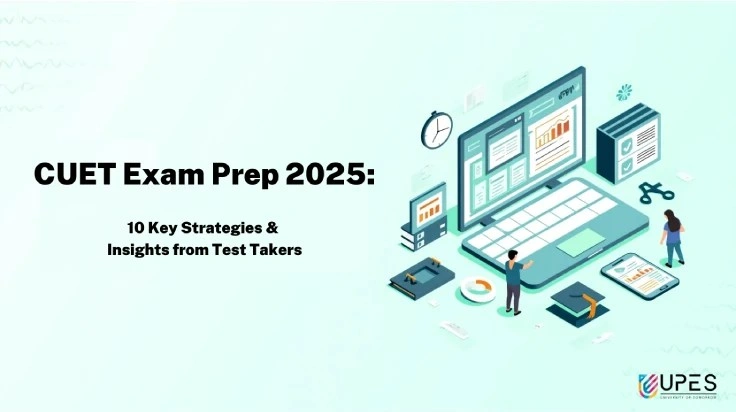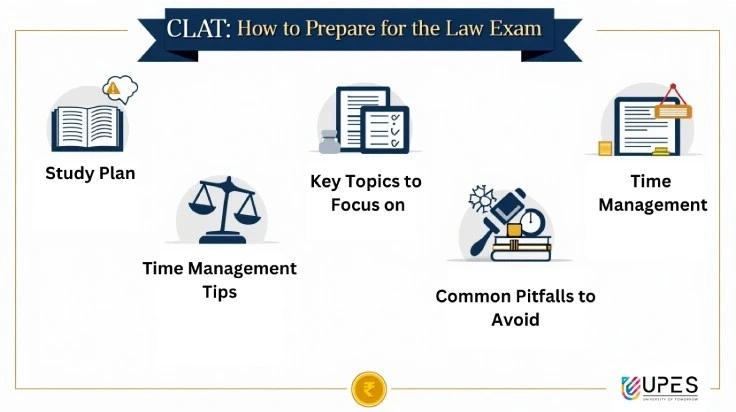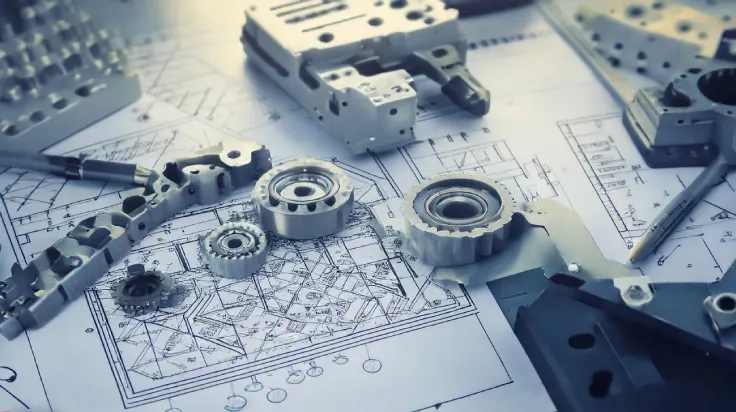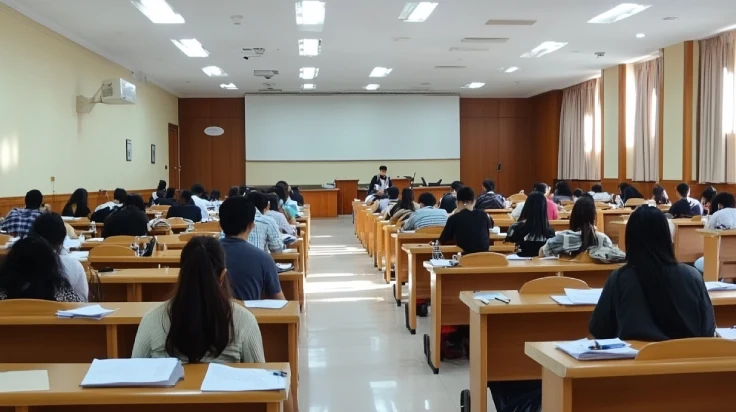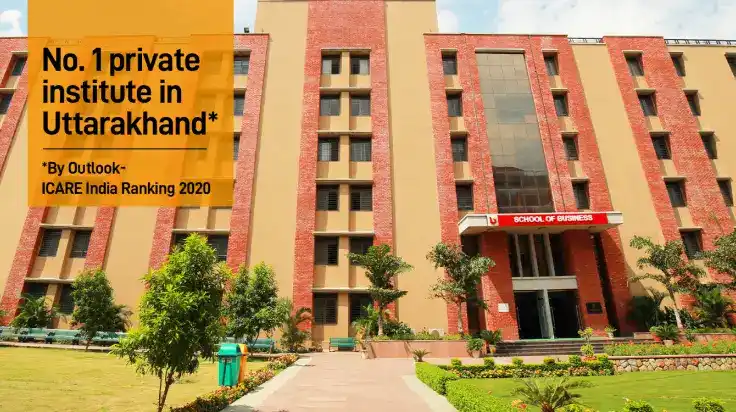JEE Mains vs JEE Advanced - Differences, Pattern, Syllabus 2025
- UPES Editorial Team
- Published 05/02/2025
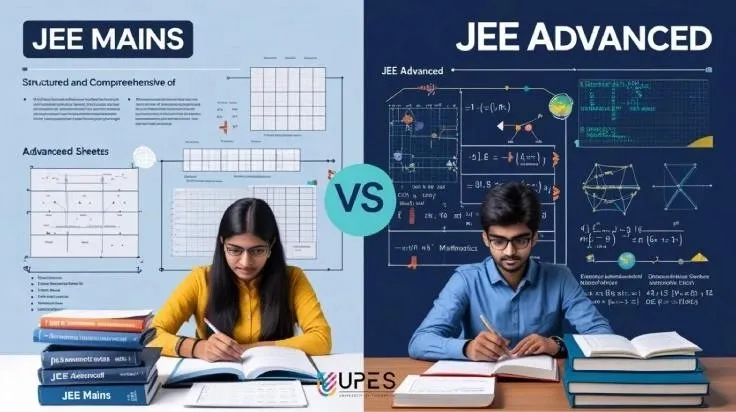
Table of Contents:
JEE Exam happens to be India’s one of the Toughest and one of the most aspired exams to crack! It opens doors to India’s finest engineering colleges and helps student receive world class pedagogy and exposure to improve and build their character. The Joint Entrance Examination (JEE) is the gateway to India's premier engineering institutes. Aspiring engineers often find themselves confused about the two critical phases of the exam—JEE Mains and JEE Advanced. Understanding the difference between JEE Mains and JEE Advanced, patterns, and syllabus can help students prepare strategically for these competitive exams in 2025. Have a look at this blog to get a comprehensive idea about the differences, similarities between the two to get an enhanced knowledge of how to prepare for them both.
What is JEE Mains?
Is JEE Main enough for IIT? NO!
JEE Mains is the first stage of the JEE examination, conducted by the National Testing Agency (NTA). It serves as the qualifying exam for JEE Advanced and as an entrance test for admissions to NITs, IIITs, and other centrally funded technical institutions. It is also widely accepted by several state-level engineering colleges and private universities across India.
Key Features of JEE Mains 2025:
- Eligibility: Open to students who have passed or are appearing for their Class 12 exams. Students can attempt the exam up to three consecutive years after completing their Class 12.
- Exam Mode: Computer-based test (CBT) mode for most sections. However, the Drawing section in Paper 2A is conducted offline.
- Frequency: Conducted twice a year (January and April), offering students two opportunities to improve their scores.
- Subjects: Physics, Chemistry, Mathematics.
- Paper Types:
- Paper 1: For B.E./B.Tech aspirants.
- Paper 2A & 2B: For B.Arch and B.Planning aspirants.
- Total Marks: 300 marks for Paper 1.
- Importance: A good score in JEE Mains ensures eligibility for JEE Advanced and admission to top engineering colleges like NITs and IIITs.
What is JEE Advanced?
JEE Advanced is the second stage of the exam, conducted by one of the IITs on a rotational basis. It is exclusively for students aiming for admission to the Indian Institutes of Technology (IITs). Known for its challenging nature, JEE Advanced tests a candidate’s in-depth knowledge and problem-solving abilities.
Key Features of JEE Advanced 2025:
- Eligibility: Top 2,50,000 rank holders of JEE Mains (approx.) are eligible to appear for JEE Advanced. Additional eligibility criteria include age restrictions and a maximum of two attempts in consecutive years.
- Exam Mode: Computer-based test (CBT) for all sections.
- Exam Date: Usually held in June.
- Subjects: Physics, Chemistry, Mathematics.
- Paper Types: Two compulsory papers (Paper 1 and Paper 2), each of 3 hours.
- Total Marks: Varies each year, with the marking scheme often including full, partial, and negative marking.
- Importance: A good performance in JEE Advanced secures admission to IITs and opens doors to other reputed institutions like IISc and IISERs.
Difference Between JEE Mains and JEE Advanced:
Let us see the key difference between JEE Mains and JEE Advanced for a better understanding of the type of exams they are:
| Aspect | JEE Mains | JEE Advanced |
| Purpose | For admission to NITs, IIITs, and other colleges. | For admission to IITs. |
| JEE Mains vs Advanced Age Limit | There is no age restriction for appearing in JEE Main. | Candidates born on or after 1st October 2000 are eligible for JEE Advanced 2025. Candidates in the PwD, ST, or SC categories are granted a 5-year relaxation in the age limit criteria, making those born on or after 1st October 1995 eligible for JEE Advanced 2025. |
| JEE Mains vs Advanced Eligibility | Class 12 pass or appearing students. | Top 2,50,000 JEE Mains qualifiers. |
| Logical Reasoning | Twice a year. | Once a year. |
| Quantitative Techniques | Moderate. | High. |
| Number of Papers | 1 (B.E./B.Tech), 2 (B.Arch & B.Planning). | 2 (Compulsory for all candidates). |
| Exam Pattern | Fixed. | Varies every year. |
| Marking Scheme | Consistent across years. | Includes partial, negative, and full marking. |
| Question Type | MCQs, numerical value-based questions. | MCQs, integer-type, and comprehension-based. |
JEE Mains vs Advanced Question Paper Language
Let’s break down exam pattern of Mains and advanced exam, duration, question types and marking schemes.
JEE Mains 2025 Exam Pattern:
Paper 1 (B.E./B.Tech):
- Total Questions: 90 (30 each in Physics, Chemistry, Mathematics).
- Marking Scheme: +4 for correct answers, -1 for incorrect answers.
- Duration: 3 hours.
- Sections: Section A (MCQs) and Section B (numerical value-based).
Paper 2A (B.Arch):
- Subjects: Mathematics, Aptitude, Drawing.
- Duration: 3 hours.
- Total Marks: 400.
Paper 2B (B.Planning):
- Subjects: Mathematics, Aptitude, Planning-Based Questions.
- Duration: 3 hours.
- Total Marks: 400.
JEE Advanced 2025 Exam Pattern:
Two Papers:
- Paper 1: Tests fundamental understanding across all three subjects.
- Paper 2: Focuses on advanced problem-solving and analytical skills.
Duration: 3 hours per paper.
Question Types:
- Multiple-choice questions with single/multiple correct answers.
- Numerical value-based questions.
- Match-the-following and comprehension-based questions.
Marking Scheme: Varies each year, but often includes full, partial, and negative marking.
Question types in JEE Mains vs Advanced are different and a coherent understanding of pattern, number of questions, topics, help prepare for them better.
Syllabus Comparison
Let’s compare syllabus of JEE Mains and JEE Advanced.
JEE Mains 2025 Syllabus:
Physics:
- Topics: Kinematics, Thermodynamics, Waves, Electromagnetic Induction, Semiconductors.
Chemistry:
- Physical Chemistry: Thermodynamics, Equilibrium, Electrochemistry.
- Organic Chemistry: Hydrocarbons, Biomolecules, Polymers.
- Inorganic Chemistry: Coordination Compounds, Periodicity, d-Block Elements.
Mathematics:
- Topics: Calculus, Matrices, Probability, Vectors, Trigonometry.
JEE Advanced 2025 Syllabus:
Physics:
- Advanced topics like Wave Optics, Rigid Body Dynamics, and Thermodynamics.
Chemistry:
- Emphasis on reaction mechanisms in Organic Chemistry.
- In-depth study of transition elements and qualitative analysis in Inorganic Chemistry.
Mathematics:
- Includes Complex Numbers, 3D Geometry, Conics, and advanced integration techniques.
Preparation Tips for JEE Mains and Advanced 2025
For JEE Mains:
- Master the Basics: Focus on NCERT textbooks for a strong foundation in Physics, Chemistry, and Mathematics.
- Practice Regularly: Solve previous years' papers and take mock tests.
- Time Management: Prioritize topics with higher weightage but ensure coverage of the entire syllabus.
- Revise Effectively: Keep revisiting formulas and key concepts for better retention.
For JEE Advanced:
Develop Conceptual Clarity: Deepen your understanding of fundamental principles.
- Advanced Problem-Solving: Tackle challenging problems and practice comprehension-based questions.
- Mock Tests: Simulate the exam environment to build confidence.
- Strategic Learning: Focus on topics like Mechanics, Electrostatics, and Organic Chemistry, which have higher weightage.
Time gap between JEE Mains and Advanced:
JEE Main session 2 and JEE Advanced are often separated by 40–50 days. Candidates can use this time to practice their JEE Main weak areas, review all the important material, and take the JEE Advanced practice exams.
Conclusion
Both JEE Mains and JEE Advanced are pivotal for engineering aspirants in India. While JEE Mains opens doors to a wide range of institutions, JEE Advanced is the ticket to the prestigious IITs. Knowing the difference between JEE Mains and JEE Advanced, exam patterns, and syllabi for 2025 can help students tailor their preparation for success. Start early, practice consistently, and aim high!
UPES Editorial Team
Written by the UPES Editorial Team
UPES Admission Enquiry
Subscribe to UPES Blogs
Join our community for exclusive stories, insights, and updates
By clicking the "Subscribe" button, I agree and accept the privacy policy of UPES.









